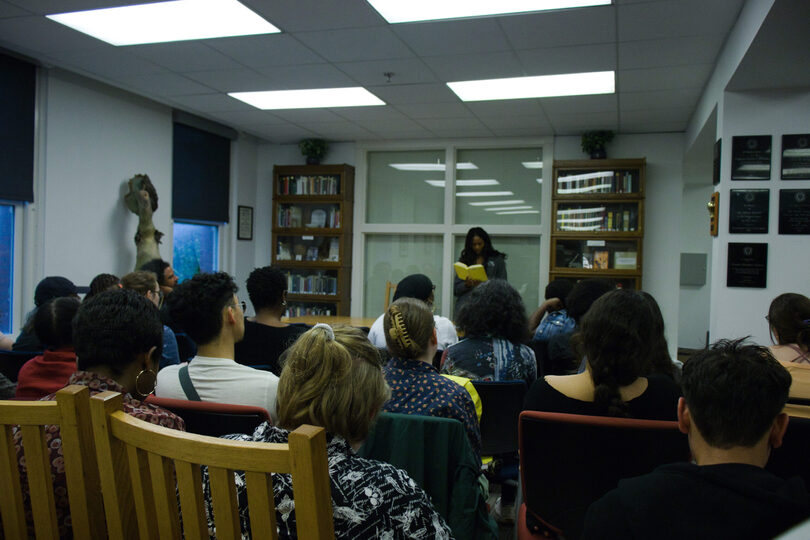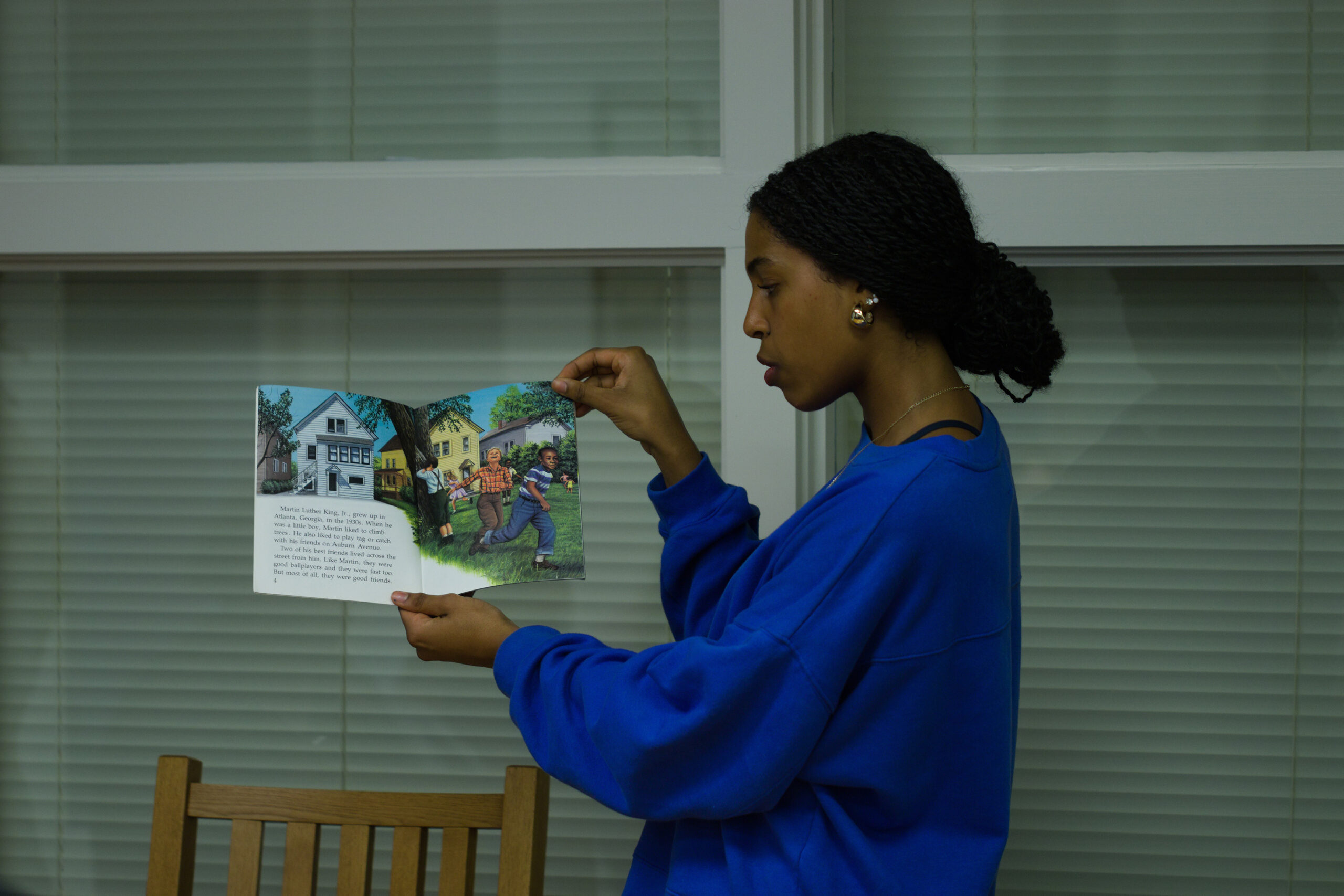AAS hosts banned book readout to amplify ‘restricted’ diverse voices

Over 30 SU community members gathered in Martin Luther King Jr. Library to read from a list of banned and challenged Black books. Popular choices included "Native Son” by Richard Wright and various works by Octavia E. Butler and James Baldwin. Ashley Glode | Contibuting Photographer
Get the latest Syracuse news delivered right to your inbox.
Subscribe to our newsletter here.
UPDATE: This story was updated at 11:42 p.m. on Wednesday, Oct. 8, 2025.
Attendees pour into the Syracuse University’s Martin Luther King Jr. Library, peering over the array of banned books laid out on the table and picking the one they connected with. Grabbing a ticket and scattering to their seats, they waited for their numbers to be called.
“It is important that the campus, as a whole, focuses on the importance of making literature available that features Black authors and diverse communities,” said Isabelle Enslin, a library and information sciences graduate student.
SU Libraries, in collaboration with the Department of African American Studies, hosted its annual Black & Banned Books Read-Out event to celebrate the right to read and bring awareness to the suppression of diverse works written by and about people of African descent. The event was part of the university’s 2025 National Banned Books Week programming.
Over 30 attendees each took three minutes to introduce themselves, read aloud and explain their choice of a passage from the prepared list of banned and challenged Black books. Popular choices included “Native Son” by Richard Wright and various works by Octavia E. Butler and James Baldwin.
“I want to give people a sense of what is being banned,” said Joan Bryant, associate professor of African American studies and coordinator of the MLK Jr. Library. “And have the ability to read-out or read-in about what people are trying to keep silent.”
Bryant began the tradition of the Black & Banned Books events 11 years ago. She brought it to the MLK Jr. Library in 2024. She said she wants people to be aware of those being “denied the right to read,” especially as the list of banned books grows and grows each year.
According to PEN America, just over 10,000 book bans were initiated in the 2023-2024 school year. Of those books banned, over 40% included characters or people of color.
Diverse books allow people to emphasize and understand other cultures and communities, Enslin said. The event recognizes the importance of literature in bridging connections, she said.
“We have this concept in library studies of windows and mirrors, where in a mirror, a child would be able to see themselves reflected in the literature,” Enslin said. ”Whereas in a window or a glass door, a child could have the opportunity to learn about other children or people in their community.”

Syracuse University biology and African American studies student Nyla shares the book “Young Martin’s Promise,” a children’s book by Black author Walter Dean Myers, which tells the life of Martin Luther King Jr. Ashley Glode | Contibuting Photographer
Sophia Lucien, an SU freshman, was working the event at the library. It’s important to uplift Black voices in the current political climate, she said, especially given the increased censorship of Black authors.
“It is important to show that we do have a voice and that we are a part of history,” Lucien said. “And that is something that can not be erased.”
Attendees read detailed passages from a variety of genres — memoirs, fiction, history and even children’s books — which have been challenged or banned by public libraries, schools, bookstores and prisons.
Reading selections came from personal connections and childhood favorites or books attendees remembered discussing in their middle school English classes.
Isiah Lavender, an English professor, read aloud from “Native Son.” He told the event’s audience the book helped him understand the blueprint and misconceptions of the “Black male, savage stereotypes.”
Bryant said she believes the conversation around the banning of books is situated in a long history of restrictions imposed on Black education and literacy.
“It’s important to understand the broader significance of how our freedom of speech and intellectual freedom to be aware are being quietly restricted and taken away,” Bryant said.





